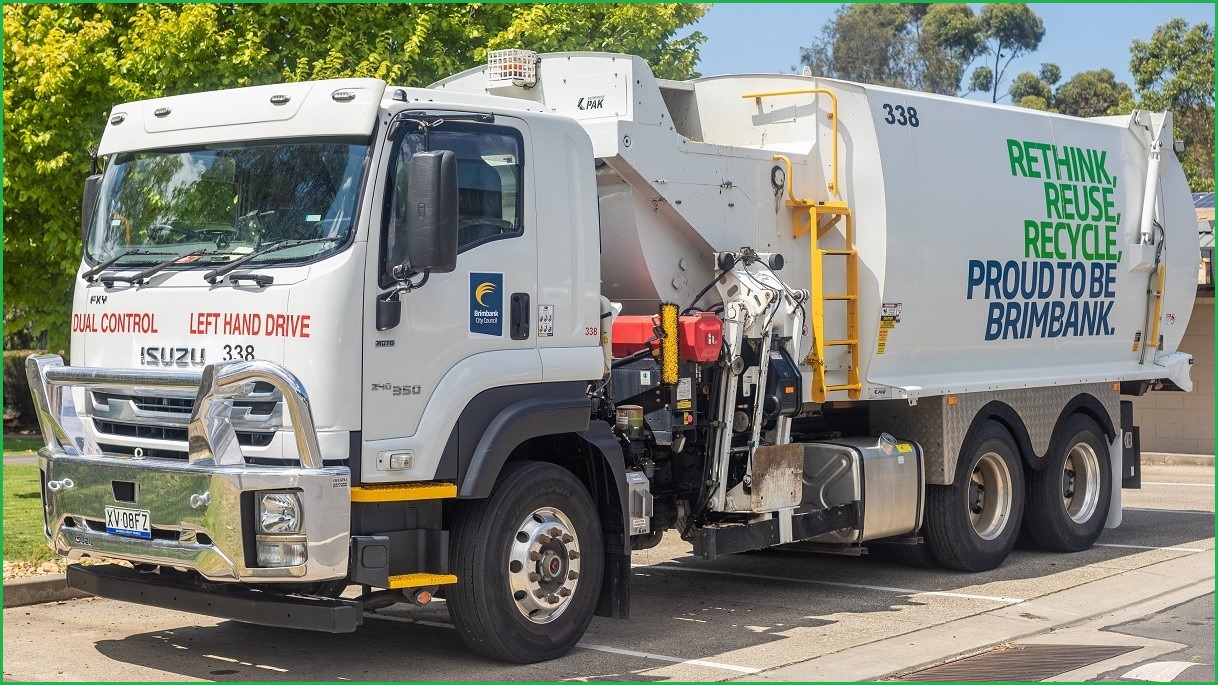They may not seem like the most intuitive targets for smart-city technology, but the garbage trucks of Melbourne’s City of Brimbank are getting a high-tech upgrade as Swinburne University researchers test a 5G-connected computer-vision system that will monitor city streets to identify potential damage and maintenance issues.
A pair of stereo vision and depth cameras, mounted on the trucks’ bullbars, use optical scanning technology to produce high-resolution ‘point clouds’ as the trucks drive the city’s more than 900km of roads.
The point clouds will provide detailed 3D images of objects on and around the streets – with an initial focus on road signs, bus shelters, and nature strips – and monitor them for changes from week to week.
Regularly scanning the same space will allow the system to pick up on damage that might otherwise go unremedied, such as damage to a bus shelter or a load of hard rubbish left on a nature strip, and automatically raise maintenance tickets for council attention.
“A lot of these are maintained in manual logs and sometimes inspections are only once in six months,” Associate Professor Prem Prakash Jayaraman, director of Swinburne’s Factory of the Future and Digital Innovation Lab, told Information Age.
“Once we start collecting this data, we’re creating a history of how things were at any point in time, and a historical view of what happened there from then to now – such as seeing cracks appearing and getting wider.”
With Brimbank spending $15m to $20m annually on maintenance of road and roadside assets, mayor Jasmine Nguyen said in announcing the project, which “offers us a quicker and more efficient way to identify which assets need maintenance, and to get the information to the work crews... to respond faster.”
Each point cloud contains around 1GB of data, meaning that the cameras produce data at a rate of up to 900Mbps – transmitting it in real time via the Optus 5G network to a cloud-based Amazon Web Service (AWS) platform for storage and analysis.
The system’s high bandwidth requirements make it an ideal use case for 5G broadband, with Optus engaged to support the project.
“Part of the project is to assess how well 5G can support such a smart-city use case,” Jayaraman explained, “and given that it can go up to 900Mbps, it’s going to challenge 5G to its extreme.”
“But by putting a router on the trucks, we will know exactly where 5G works well, where it fails, and what needs to be done in those areas to improve 5G coverage or performance.”
5G is driving smart-city use cases
The ability of 5G networks to support both high-speed and low-speed connections is helping them gain currency among smart-city advocates, with extremely low latency making the networks suitable for rapidly-moving environments such as self-driving cars – and, yes, garbage trucks.
GlobalData recently predicted that 5G subscriptions will grow rapidly across APAC countries, with 25.5 per cent annual growth through 2026 driven by “visionary ecosystems”.
5G services will comprise 45.8 per cent of all mobile subscriptions by 2026 – up from 17.6 per cent in 2021 – with GlobalData senior telecom analyst Deepa Dhingra attributing much of the growth to accelerating smart city initiatives in areas such as e-government, e-healthcare, smart traffic management, and smart power grids.
“While the pandemic had initially impeded the rollout of 5G networks,” Dhingra explained, “the need for high-speed reliable networks to sustain the backbone of the digital economy – and drive innovation across industries through use of new digital tools such as Internet of Things [IoT], automation, and data analytics – has provided the motivation and incentive for 5G investments... and will drive a strong case for 5G in the region.”
While 5G will provide robust bandwidth for video and large data streams, depending on the application, it will also be complemented by investments in IoT-specific networks such as Telstra’s LPWAN network.
Steady growth in recent years has seen 1.2m devices connected to Telstra’s LPWAN network, with 50,000 more devices connected every month and Telstra recently signing a $100m deal with smart-meter firm Intellihub that will connect up to 4.1m more devices over the next decade.






